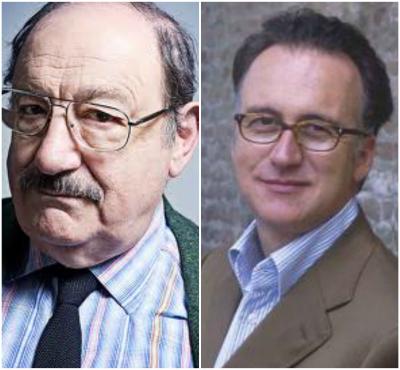words by Gabi Logan
Today, the British reading and writing charity Booktrust announced the shortlist for the 2012 Independent Foreign Fiction Prize (IFFP). Umberto Eco and Diego Marani are two of the six authors shortlisted for the award to be presented on the 14th of May 2012 at the Royal Institute of British Architects.
Eco's The Prague Cemetery, translated by former criminal barrister Richard Dixon, examines the anti-Semitism that infected both the popular culture and the intellectual community in 19th-century Europe. Delving into the psychological roots of the Holocaust, the novel is "Eco's best novel
since The Name of the Rose", according to Professor Jon Cook, one of the IFFP prize judges.
Marani's shortlisted work, New Finnish Grammar centres around World War II, zeroing in on an unidentified amnesiac soldier. Presumed Finnish, he's taught the language in attempt to reconstruct his identity. Translated by Judith Landry, the work examines "how much of what we take to be ourselves depends on the language that we speak and the identity it gives us", says Cook.
Eco and Marani join authors from China, Germany, Iceland, and Israel on the shortlist, which primarily features accounts of exile and persecution around the world. The judges commented that the works "reinforce our shared humanity. Life's largest -- and smallest -- moments often prove universal".
Booktrust, in collaboration with The Independent and Arts Council England, awards the IFFP to the best work of contemporary fiction in translation each year. The prize honours both the translator and the original author equally, and any work by a living author translated and published in the UK in the past year is eligible. Past winners include Milan Kundera and W.G. Sebald.













